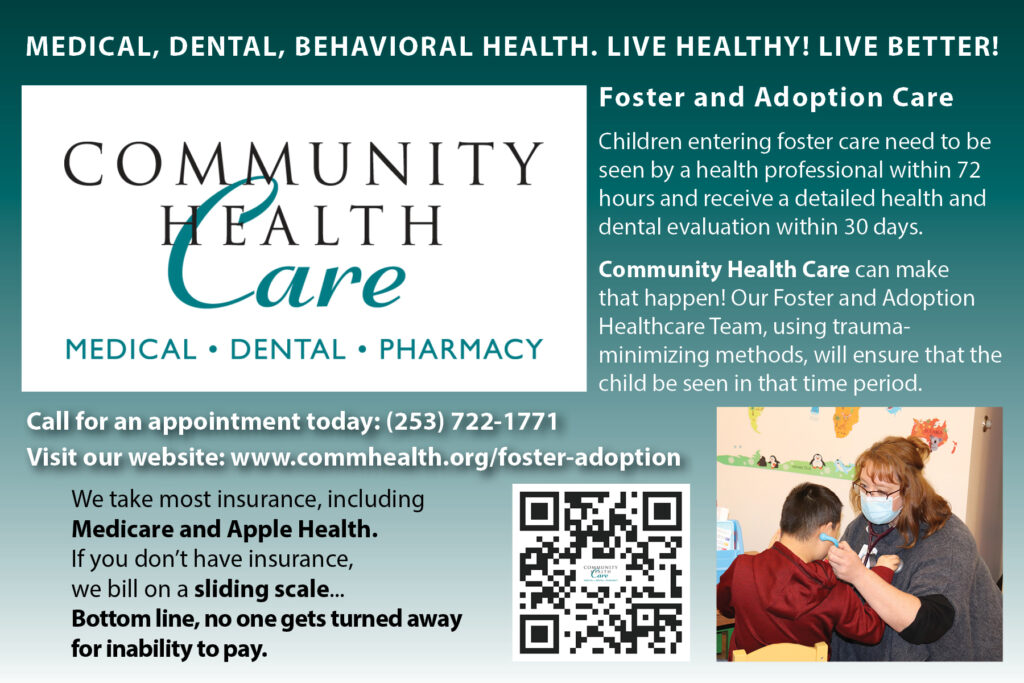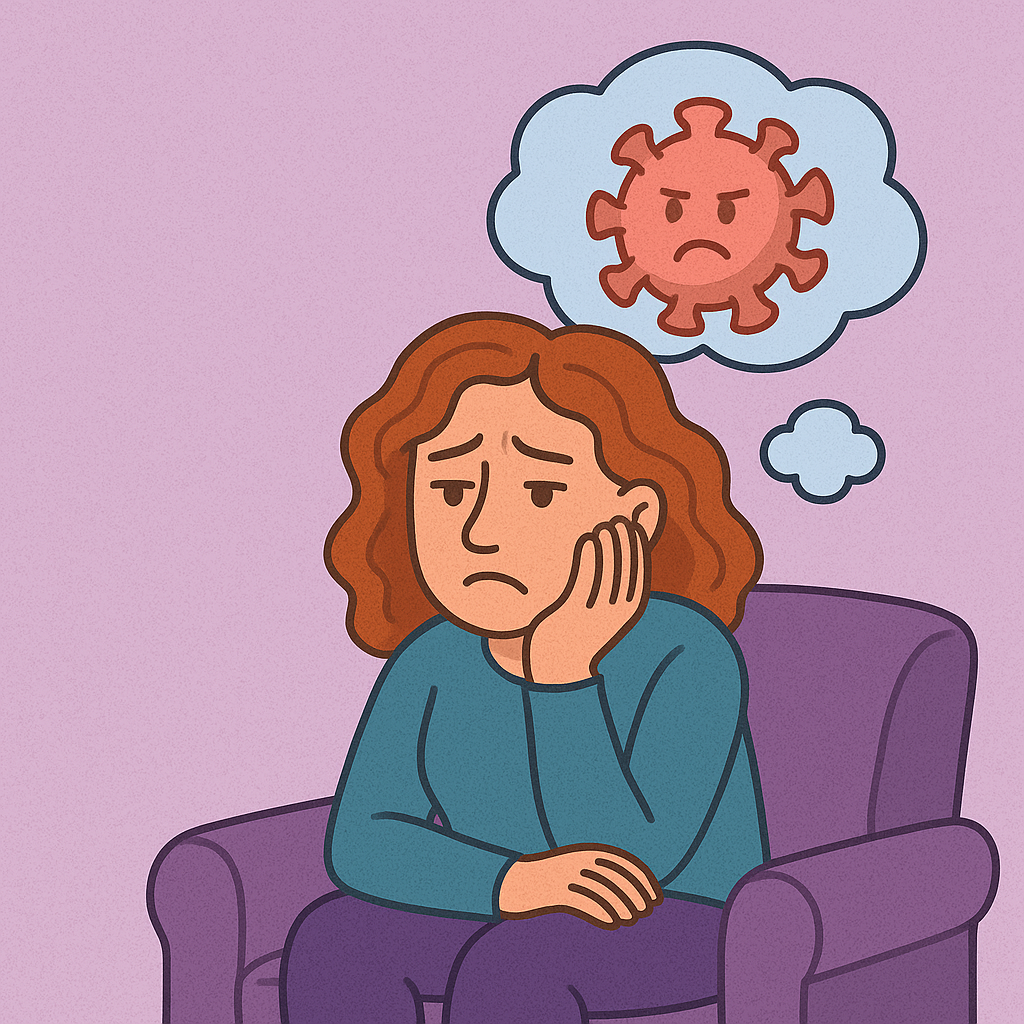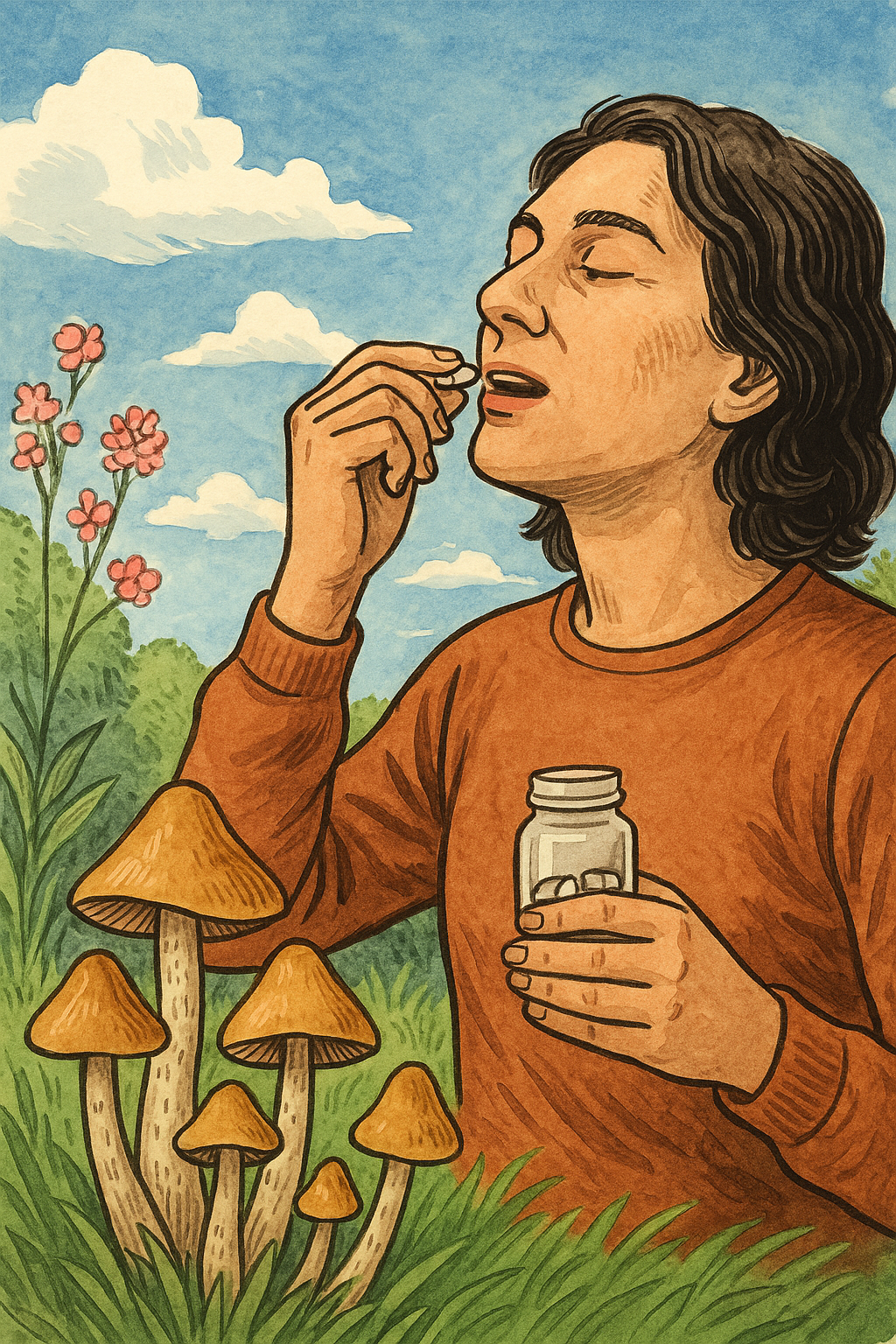Hey Aarde,
I’m starting to wonder if I am in perimenopause. But with brain fog and exhaustion, I’m concerned it’s long COVID. How would I even know the difference? If it is the onset of menopause, I’m nervous for the next decade and want to get ahead of it so that I don’t end up like my mother, who screamed all the time. Either way, I want to feel better.
Signed,
Hormonally Challenged
Hey, Hormonally Challenged,
If you are a woman within a specific age range (early 30s to late 50s), then you are most likely beginning to experience the effects of “the big change.” For decades, menopause was a taboo subject that not even women discussed in private circles. With the many movements for women’s rights, we have begun to reconcile with the parts of ourselves that, for centuries, had been hidden from the public and from each other. Women lived embarrassed, uncomfortable, uninformed, and scared due to the symptoms their bodies were exhibiting.
According to Dr. Sara Szal, 75 percent of women do not get the treatment they deserve for perimenopause, and many of the symptoms are avoidable. Dr. Marie Clair, Mel Robbins, Davina McCall, and Lisa Mosconi are all #menopausewarriors who discuss how cortisol, testosterone, progesterone, and estrogen impact your everyday life.
Hormone replacement therapy (HRT) has been available since the 1930s, when doctors noticed symptoms of menopause after removing ovaries in younger women. Feminine Forever was a bestseller in the 1960s and claimed that “menopause is a hormone deficiency disease, curable and totally preventable—just take estrogen.” It wasn’t until the 1970s that perimenopause was even recognized as a health issue in women, and clear up into the 1990s, some doctors referred to these patients as “whiny women” and cast them to the sidelines. I can only imagine your mother’s level of irritation, living in a time when doctors dismissed you, men laughed at you, and your children feared you—living a life with migraines, brain fog, and ninety-nine other problems. Granted, with over one hundred symptoms of perimenopause, it seems a daunting task for any professional (we could do without the ridicule, though), from the commonly known hot flashes and irregular periods to frozen shoulders, burning mouth syndrome, and vertigo.
In the 1990s, the government stepped in, requiring a clinical study (because the last six decades of HRT weren’t good enough). The Women’s Health Initiative (WHI) performed a clinical study in the United States of sixteen thousand women, and the results released in 2002 showed evidence of heart issues, dementia, and breast and cervical cancer. Unfortunately, the WHI studied women in their fifties into their eighties—a vast difference from the typical thirty-five-year-old who is at the beginning stages of menopause. Yet what should have been controversial was the study itself; its base was problematic, being, on average, twelve years past menopause. Regardless, panic spread about the dangers of HRT during the early 2000s. Women began to refuse HRT and resort to doctors unfamiliar with hormonal deficiencies, treating symptoms separately: migraines? Neurotherapist. Bone density loss? Osteotherapist. Frozen shoulder? Physical therapist. Each treated a piece of the puzzle in a silo, each required a doctor’s referral, and each needed an appointment booked weeks or months in advance.
Yes, other things can be mistaken for perimenopause, such as thyroid problems, depression, pregnancy, and long COVID. With overlapping symptoms, advocating for yourself just became much more difficult. Dr. Tara Iyer, director of the Menopause and Midlife Clinic at Harvard-affiliated Brigham and Women’s Hospital, said about a patient attributing “many of these new symptoms to long COVID, but they’re also symptoms we may see as perimenopause progresses, [and] I couldn’t tell her if one condition was making the other worse.” Scientists are determining that women are disproportionately suffering from long COVID and are linking it to estrogen and inflammation. With modern studies focusing on the connection between menopause and COVID-19, they are finding that HRT is both a treatment and a diagnostic tool. Therefore, regardless, HRT is going to help. You can feel reassured knowing that people are dedicating their lives to creating clarity on this issue. Following some of the #menopausewarriors I mentioned above will keep you abreast of new studies and findings. Educating yourself is the number one tool for survival.
On a more personal note (if you are one of the fortunate individuals with medical insurance), I suggest discussing your concerns with your doctor and requesting a hormone blood panel. If your doctor refuses and says that you don’t need it or do not have enough symptoms, consider finding a new doctor. Knowing your hormone levels isn’t essential, but they can be a valuable biomarker as you navigate the next few decades of your life. Having a baseline is helpful, so the earlier, the better. Ask for information on HRT or other suggestions, such as food-friendly alternatives, supplements, or a referral to a naturopath. And remember, you are the CEO of your life; if you are not satisfied with the treatment you are receiving, you have the right to request a new doctor.
What about those of you who do not have health care (I can’t believe I even have to type that)? There are ways to manage this out of pocket. Several home hormone test kits are available, including Everlywell, Labcorp, MyLab, and Clearblue, to help you determine your current hormone levels. You can visit www.healthline.com to compare these companies and determine which one is a good fit for you. We are fortunate to have some excellent naturopaths in Pierce County. I suggest googling some and calling them to see what their rates are; some even offer a sliding scale payment or discounted rates for members of our lower-income communities. Research shows that women can balance their hormones through the foods they eat, as well as through supplements and general body awareness. I honor my cycle (the one that creates life) and allow myself to rest guilt-free when I need to, providing an environment where my body and mind are in harmony. Keeping active is always the top prescription for optimal health; start small and build the habit gradually. Heck, hit up ChatGPT to create a custom weekly menu that balances perimenopausal hormone levels with healthy meals rich in estrogen-producing foods. With all the new information emerging, I am confident that these issues will be a thing of the past within the next few decades.
Do you have a question for Ask Aarde? Send them to: Jdaarde@gmail.com
Disclaimer: This article is for informational purposes only and is not a substitute for professional medical advice, diagnosis, or treatment. Always consult with a qualified healthcare provider about any medical condition, symptoms, or treatment options. Hormone replacement therapy and alternative treatments may not be appropriate for everyone and should be discussed with your doctor. Home hormone test kits should be interpreted with professional guidance.






